The 21st-century mental health crisis is real. Many people are desperate for help, guidance, and someone to talk to.
But for any support to be effective, it has to be administered by a licensed and trained professional who knows what they're doing. 'Help' or 'advice' from an amateur, albeit a well-meaning amateur, will probably be a waste of time and money. It might even be counterproductive, leaving the patient feeling worse than before.
With so many people turning to TikTok for mental health advice, the big question is obvious - how reliable and accurate is mental health advice on TikTok?
PlushCare thought this was a question demanding an answer. So the online health provider asked its team of mental health professionals to analyze 500 TikTok videos on mental health issues.
Here’s a look at what they thought of them…
The quality of TikTok mental health content
According to the data collected and analyzed by PlushCare, more than 80% of mental health content on TikTok contains misleading information.It gets worse. PlushCare also found that:
- 31.4% of mental health TikTok content contains inaccurate advice
- 14.2% of relevant content includes potentially damaging advice
- Only 1% of all mental health content distributed via TikTok comes with a disclaimer.
How many people use TikTok for mental health advice?
A session with a fully-qualified psychotherapist costs somewhere between $100 and $200. On average, people need 10 - 20 sessions to reach their goals, although those living with deep-rooted trauma often require longer-term work that can last for years.High-quality therapy is super-expensive. And that explains why so many people consume so much free mental health content on TikTok.
The 500 videos analyzed by PlushCare clocked up almost 25 million views. And the content creator accounts that made these videos have more than 40 million followers.
In other words, a lot of people (including many in a vulnerable or impressionable state) are consuming mental health advice deemed inaccurate and harmful by trained medical professionals.
The most misrepresented medical conditions
According to several major medical organizations - including the American Psychiatric Association - attention deficit hyperactivity disorder (ADHD) is a neurodevelopmental disorder characterized by excessive inattention, hyperactivity, and compulsive behavior.Critics say the condition is overdiagnosed, especially among boys and young men, while some voices within the mental health community reject ADHD as a disorder.
Either way, ADHD is a controversial topic. Moreover, ADHD requires a series of complicated tests and ongoing evaluations before an accurate diagnosis is possible.
Anyone with serious concerns about ADHD should speak to a trained professional in person.
But many are still researching (and even self-diagnosing) ADHD via TikTok. And the content they're consuming is - to put it mildly - not good.
100%(!) of ADHD content posted on TikTok contained misleading advice, according to the real experts brought in by PlushCare.
TikTok content on bipolar disorder and depression is also full of misleading information. PlushCare found that more than 9 in 10 videos covering both topics contained information that was not medically accurate.
And the TikTokers producing content on anxiety aren't doing much better; Just under 9 out of 10 (89.6%) of the videos they make got the thumbs down from mental health professionals.
The least accurate mental health advice on TikTok
It's great that we're paying more attention to our mental health. But now that mental health issues are in the spotlight, there's a tendency (in some circles) to overemphasize terms and conditions - and often in an inappropriate context.Trauma is the perfect example. Trauma is an emotional response to an overwhelming event, like an accident or crime. Short and long-term symptoms include exhaustion, confusion, sadness, anxiety, agitation, numbness, dissociation, and blunted emotions.
Some people live with undiagnosed trauma for years, even decades, which has a devastating effect on their well-being.
Trauma is not a word or condition to be treated lightly. It shouldn't be used as a label to explain natural feelings and responses to every uncomfortable situation. Feeling 'bad' about something doesn't mean we're traumatized.
Worryingly, trauma is the most misrepresented condition within all mental health content posted on TikTok. More than half of the content (58.33%) of trauma content on TikTok is inaccurate. And 8.33% is potentially harmful.
Less than 10% of TikTok mental health content creators have relevant medical qualifications and credentials. The other 90% are 'self-taught,' which essentially means they read stuff on Google.
Don't trust these amateurs with your mental health!
Always speak to a professional.
Read next: Toxic Social Media Comments Grab More Attention Than Positive Ones According to Eye Tracking Study
by Irfan Ahmad via Digital Information World
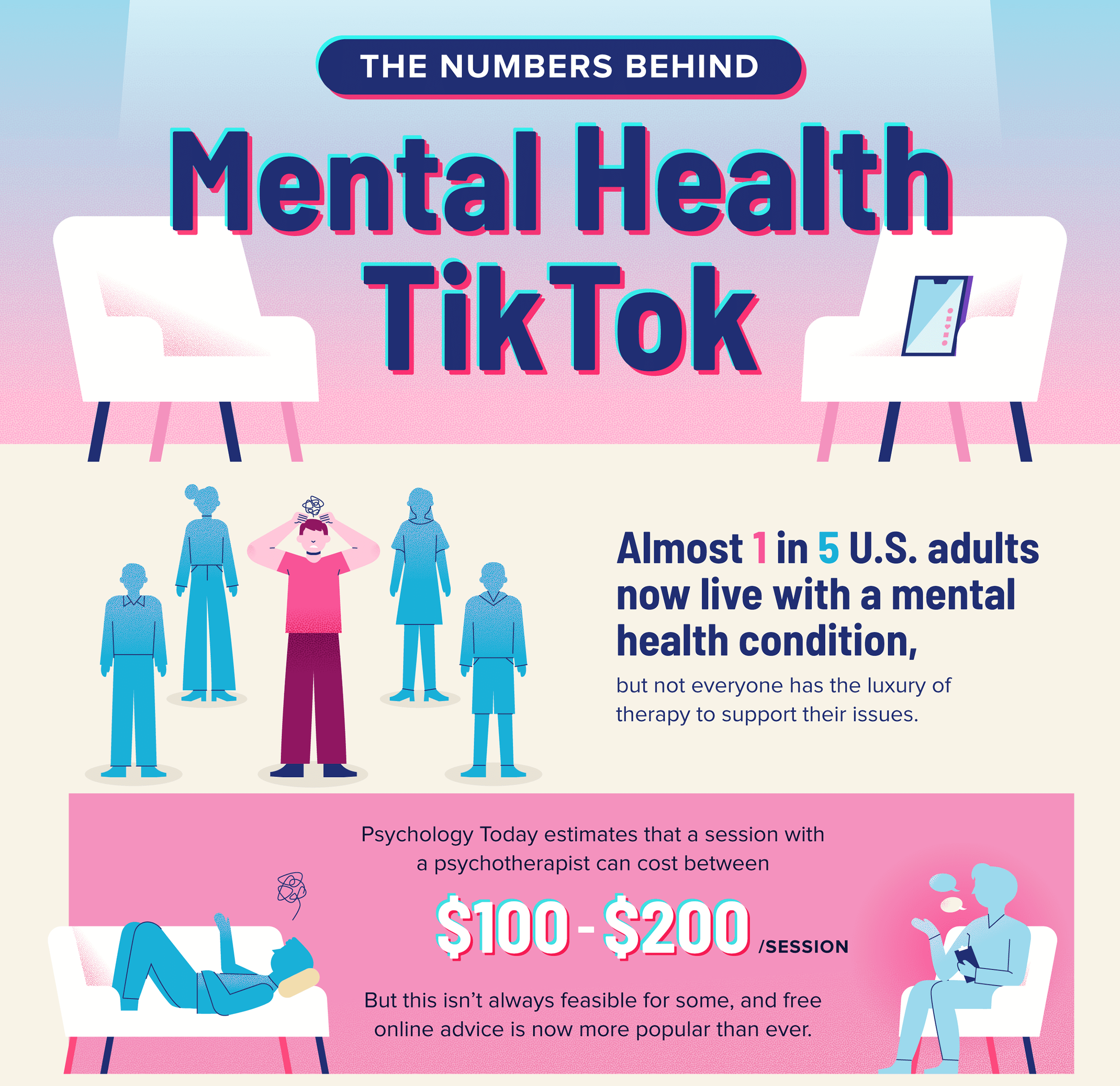
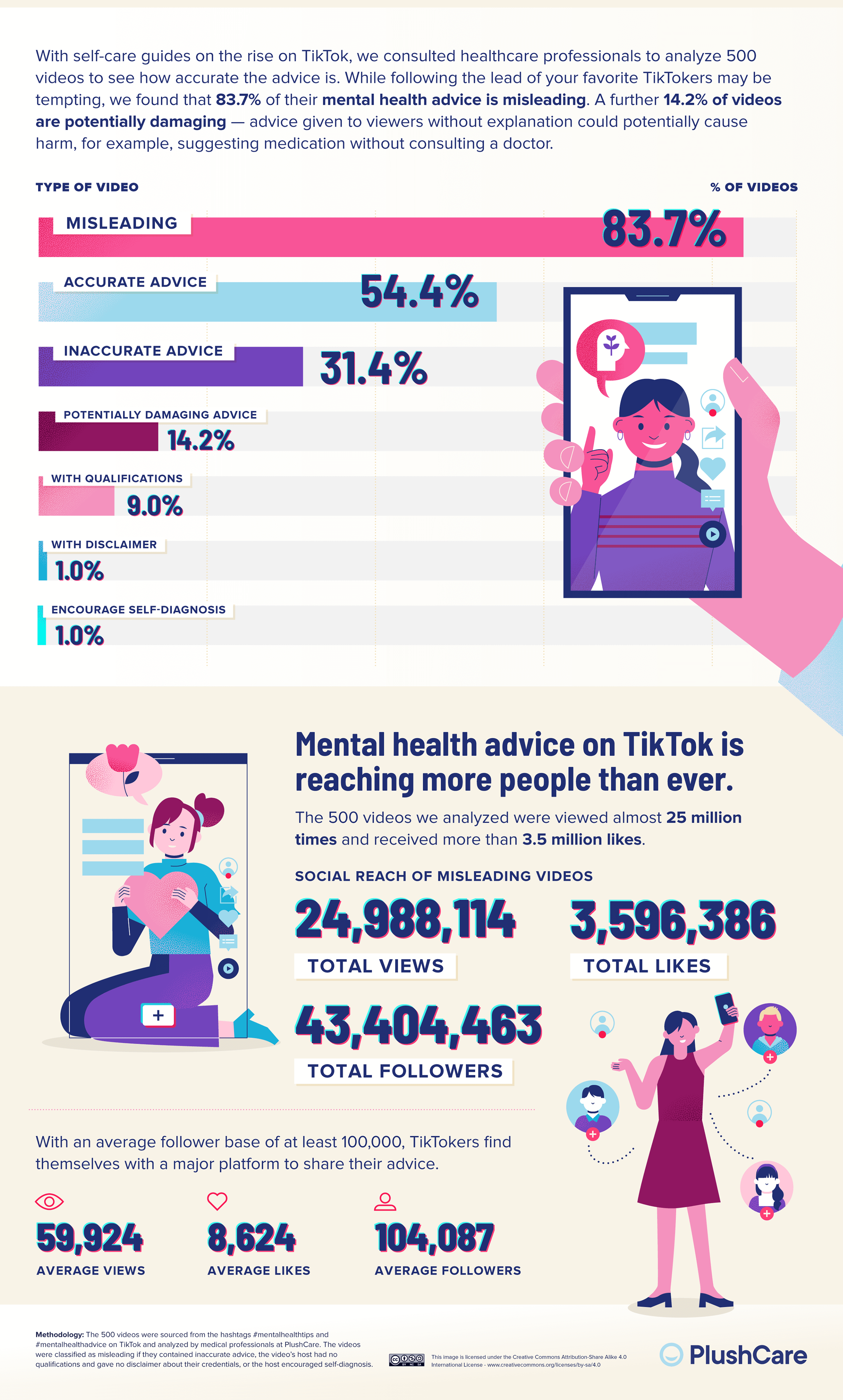
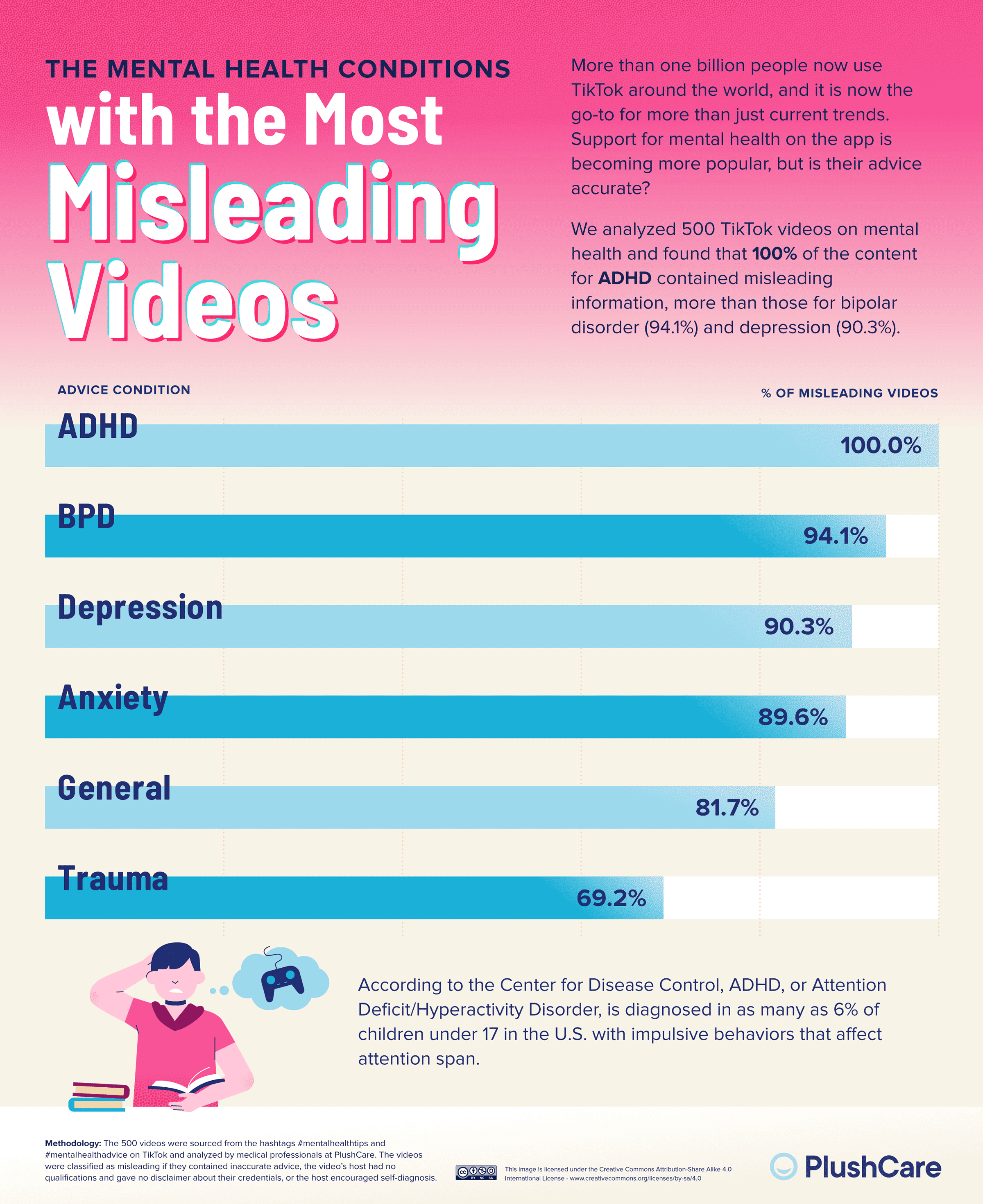

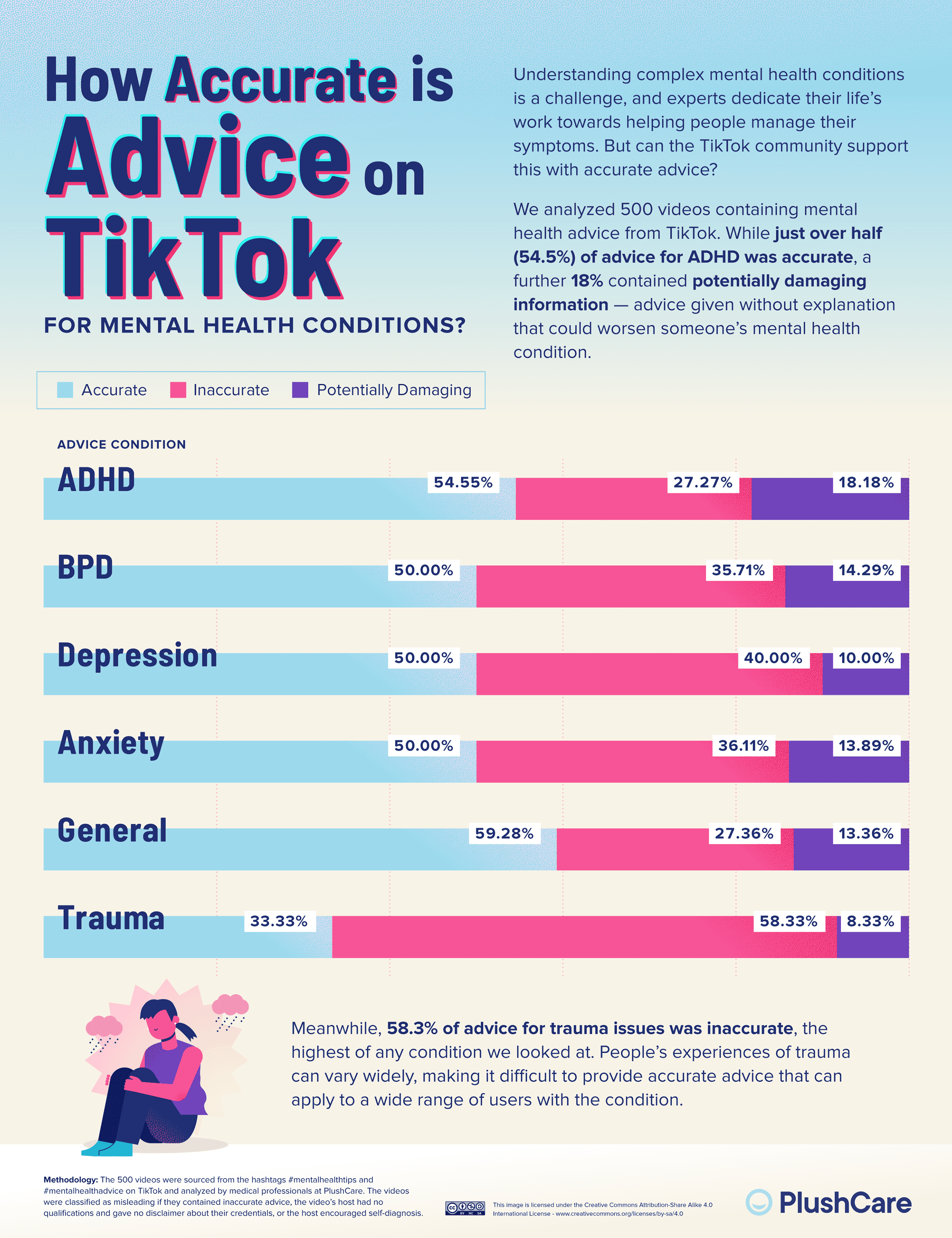
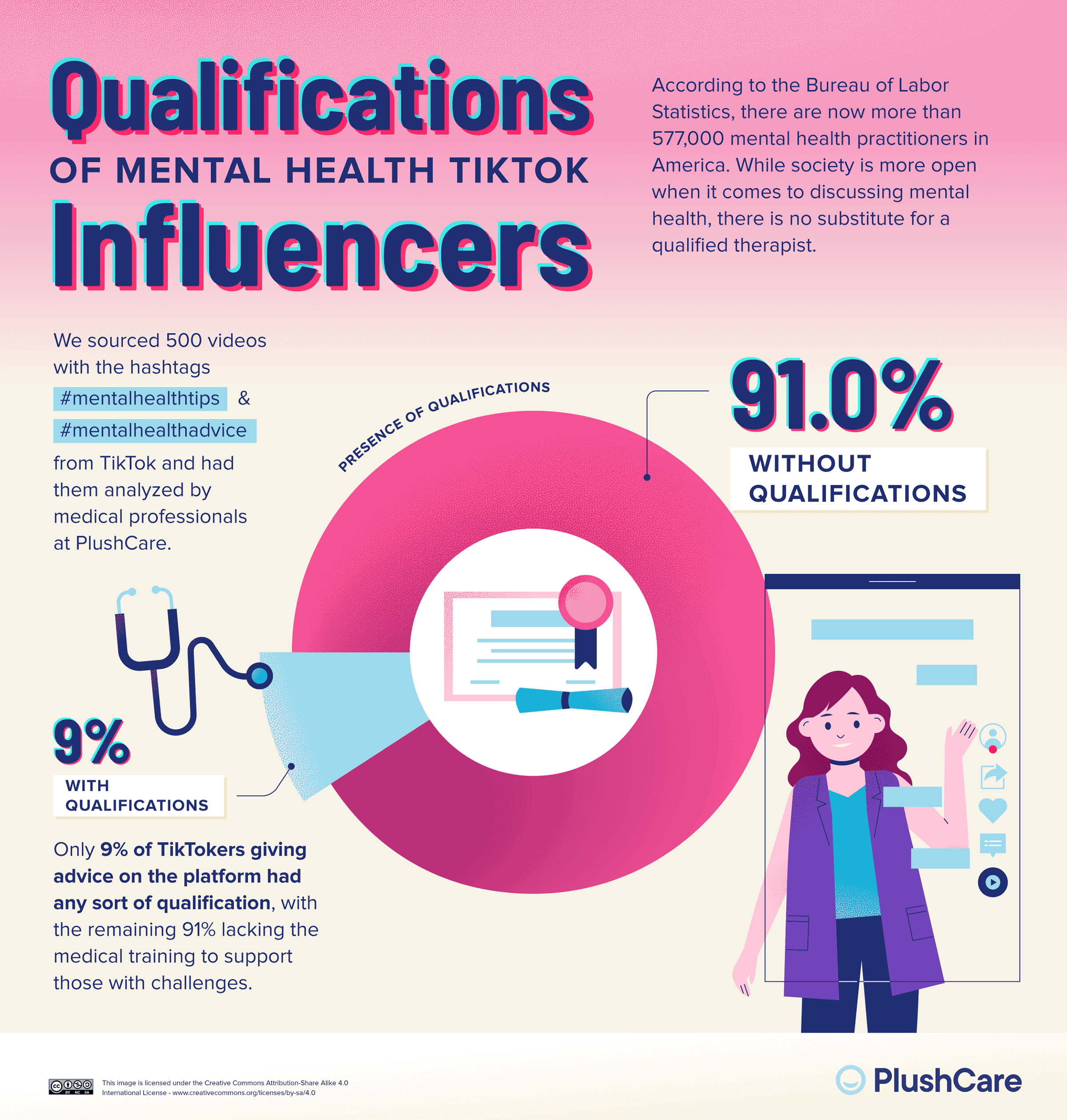

No comments:
Post a Comment